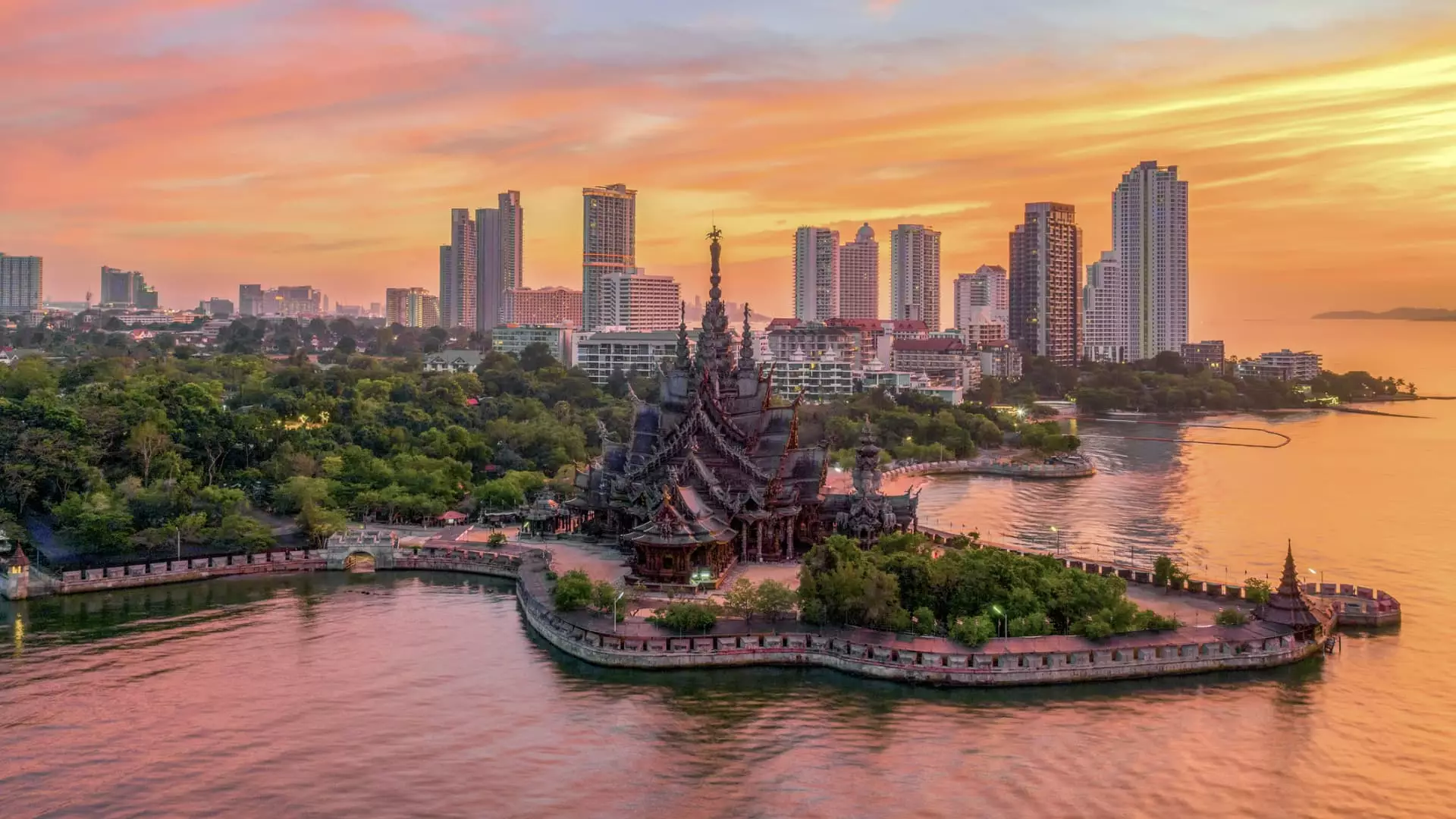Post-pandemic recovery has been slow for many countries, and Thailand is no exception. As the tourism sector remains stagnant due to lingering effects from the Covid-19 pandemic, the Thai government is re-evaluating its approach to attract foreign visitors and increase tourism expenditure. In a groundbreaking move, Thailand is seriously contemplating the legalization of casinos. This strategy, which has proven effective for neighboring countries like Macau and Singapore, could significantly reposition Thailand as a formidable competitor in the global tourism arena.
The underlying goal of integrating casinos into Thailand’s tourism infrastructure is to replicate the success stories of Macau and Singapore. Both regions have transformed their economies through the establishment of entertainment complexes that draw tourists not just for gambling but for a multitude of experiences. The former Thai Prime Minister, Srettha Thavisin, was pivotal in initiating the drafting of a bill to legalize gambling operations, which could provide a substantial economic boost and stimulate job creation. However, the political landscape remains dynamic, and many are questioning if the momentum towards casino legalization will persist under new leadership.
Thailand’s economy is heavily reliant on tourism, which accounts for a significant portion of its GDP. Unfortunately, after welcoming 28 million tourists in 2023—down from nearly 40 million in 2019—the country has yet to fully recover. Industry analysts like Ben Lee from IGamiX Management highlight that without the full return of Chinese tourists, who played a considerable role in the pre-pandemic tourism boom, Thailand’s economic revitalization will remain elusive.
The proposed legislation aims to legalize entertainment complexes that encapsulate casinos, which could generate substantial revenues. Maybank Investment Bank estimates that Thailand could see around 187 billion Thai baht ($5.5 billion) from newly established casinos, equating to 1% of the nation’s GDP. This is encouraging news for an economy that recorded a modest growth of 1.9% in 2023, with predictions for a slight upward trend to 2.7% in the coming year.
Experts such as Gary Bowerman emphasize that the casino initiative could bolster Thailand’s position amid stiff competition from other Southeast Asian nations. Countries like Vietnam, Malaysia, and Myanmar are also seeking to enhance their tourism appeal, which adds urgency to Thailand’s casino project.
While the government has yet to declare the official locations for the proposed casinos, policymakers and analysts suggest that the casinos will likely be situated outside Bangkok. Urban areas are highly developed, leaving less opportunity for large-scale gaming establishments to surface. Instead, regions such as the Eastern Economic Corridor and popular tourist destinations like Phuket, Pattaya, and Chiang Mai are expected to become prime locations for casino resorts.
However, experts remain cautious. Allan Zeman, a high-profile developer, stated that simply establishing casinos in less populated areas doesn’t guarantee success akin to that seen in larger urban settings like Las Vegas or Macau, where multiple casinos are clustered together, creating a bustling environment.
In what mirrors the Singaporean model, the draft of the Entertainment Complex Act outlines that Thai citizens will pay an entrance fee, set at 5,000 Thai Baht ($147), to access the casinos—an effort to manage the inflow of local gamblers. This is juxtaposed with a free entry for foreign visitors, aiming to encourage an influx of tourists. Licensing applications will not only involve hefty fees but also mandates that foreign operators partner with local Thai companies to ensure national interests are prioritized.
This is crucial, as local business involvement can facilitate smoother navigation of regulations and enhance community integration, which is vital for the long-term sustainability of the casinos.
The ambitious plan to establish a strong casino ecosystem in Thailand holds the potential to not only revive but redefine the nation’s tourism landscape. Industry insiders believe that if executed effectively, these casinos could potentially rival Singapore’s gaming revenues while reinforcing Thailand’s pre-existing position as a prominent global tourist destination.
However, like any ambitious venture, challenges will continue to surface. Regulatory hurdles, societal perception of gambling, and the need to create a diversified entertainment model—one that attracts not only gamblers but families and non-gamblers alike—will be pivotal for success.
Whether Thailand’s venture into the casino industry will be a boon for its economy depends largely on strategic planning, community engagement, and how adeptly the government can navigate the complexities of this competitive landscape. With proper execution, Thailand could very well reclaim its status as a tourism giant and an emerging player in the Asian casino market.


Leave a Reply